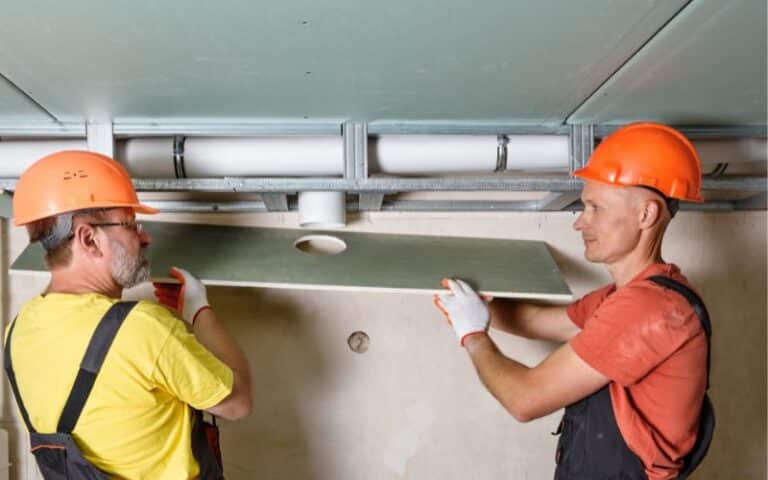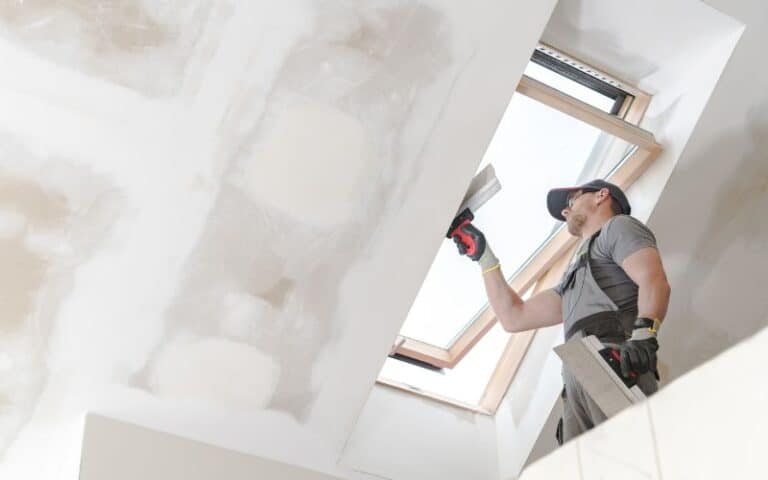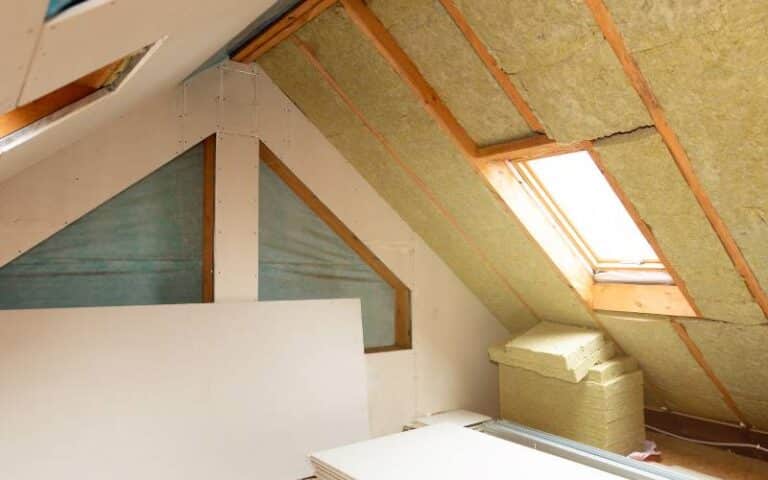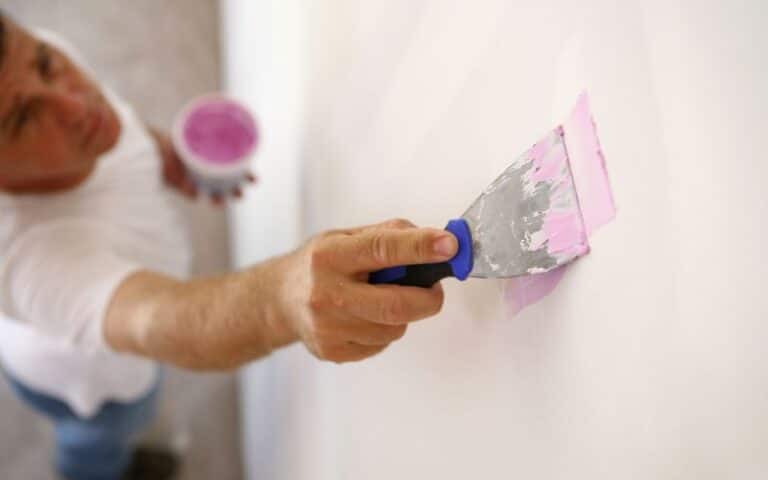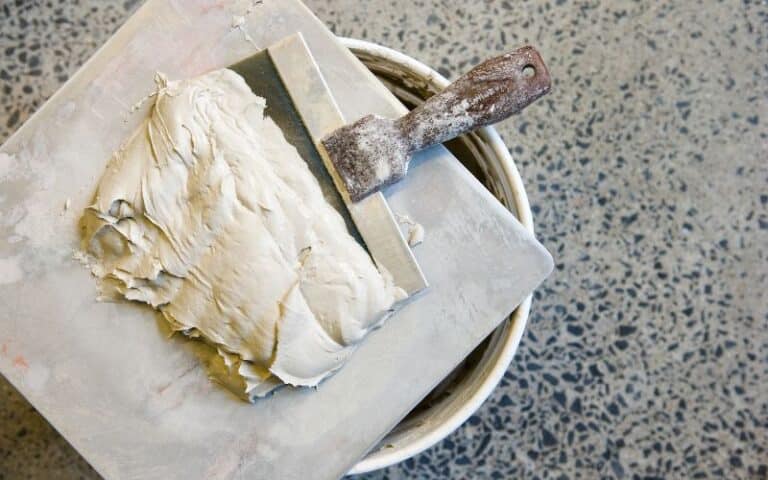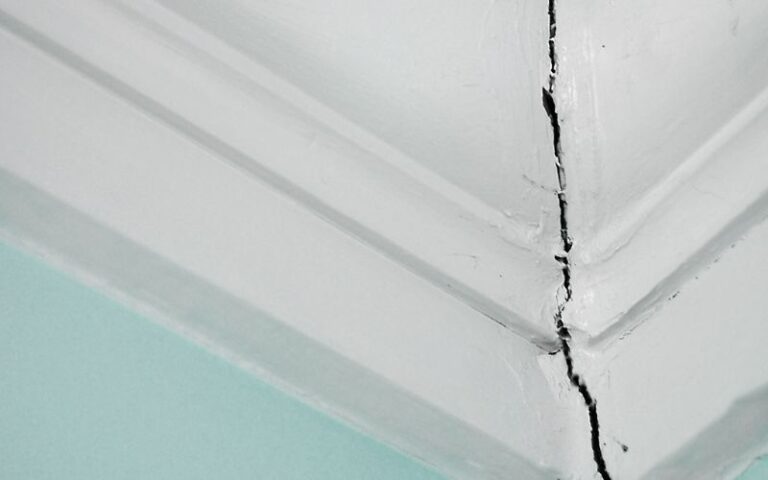Unfortunately, not many people know there is a difference between screws. Not all screws are suitable for Drywall boards.
It is common for construction workers to use drywall screws for drywall projects. However, what do you do when you don’t have drywall screws available?
I bet you want to know the various alternatives you can use if you don’t have drywall screws in your infantry.
You can use deck screws for drywall projects. Deck screws are thicker than traditional drywall screws, but they do the work of drywall screws as effectively. However, since drywall screws are significantly bigger, there is a higher risk of splitting or cracking the board if you over-drill.
In this article, I will explain why deck screws are good enough for drywall projects.
Furthermore, you will come across pointers to note when using deck screws for a drywall project.
Hence, keep digging if you want premium content on handling deck screws on drywall projects.
Ready for a Drywall Quiz?
Are Deck Screws Good for Drywall?
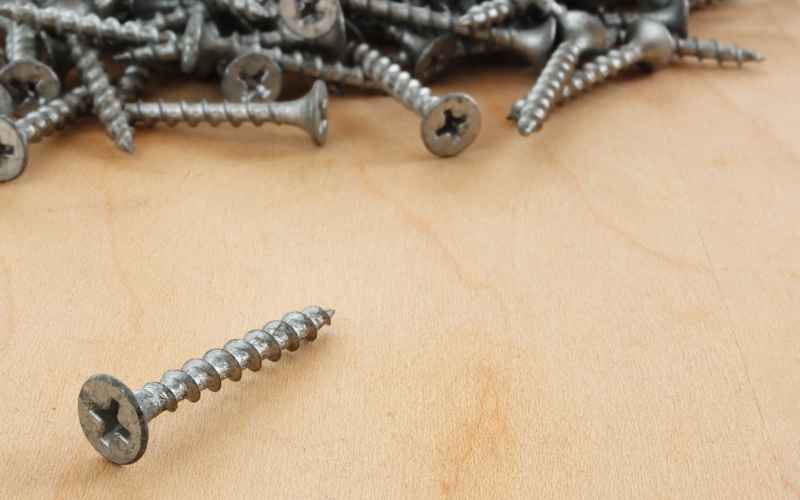
Yes. You can use deck screws for drywall. Although deck screws aren’t ideal to use for drywall, you can still use them.
Deck screws are slightly thicker in size than regular drywall screws. However, there’s one upside to using deck screws.
They are a suitable replacement and offer stable solutions. Deck screws are a recommended replacement, but they sometimes crack or split the surface.
The risks deck screws come with might ruin the beauty of your work. Hence, you need to be precise when drilling these screws into holes.
It’ll split the drywall if you don’t screw them correctly. Hence, in the coming section, you will learn how to protect your drywall project if you opt for one of these screws.
#1. Size of Deck Screws
The significant difference between drywall screws and deck screws is the size and shape of each screw.
Deck screws are a little thicker than your average drywall screw. However, this difference in size is irrelevant until you start drilling into drywall.
The difference in size becomes a significant issue, especially if you’re used to drilling regular drywall screws.
However, this is avoidable. Before you start drilling, you need to take note of the type of screw you’re using.
If you’re careful, the size difference between both screws will become irrelevant. Furthermore, you should find durable deck screws to hold the structure together.
That is an added advantage because it will hold the structure together firmly and ensure perfect results with the best finishing.
#2. Can Cause Splitting
Before you begin a project, consider what deck screws can do to your project if you don’t drill it correctly.
You won’t have to worry about this in most cases, but you can always be careful.
Splitting may not be as challenging as I’ve put it, but it is worth considering. Nothing is more annoying than having an imperfection on a beautiful project.
Furthermore, you don’t want a hairline crack forming after the screw goes in. This crack makes the structure fragile around the screw.
It’ll only be a matter of time before it comes crumbling down.
#3. Precision Is Key
Always remember that every single drill is essential. Refrain from drilling too hard or in the wrong position.
Always use the right tools while drilling, and only drill after you’ve done the required measurement.
You may trust your human eye, but the eyes are always wrong in construction. So make your measuring tape your best friend.
Measurement is crucial, especially if you want to fit deck screws into drywall sheets.
Furthermore, since there are different grades and types of drywall, how well a drywall board can handle a deck screw is also essential.
This detail might seem insignificant, but it comes to play when you don’t drill in the correct position or over-drill.
To use deck screws without a fuss, be precise and ensure the measurements are accurate for all drilling holes.
The mistake a lot of people make is overlooking the measurement part. The correct drilling spots play a significant role in the structure’s longevity.
Be active with your measurements. Mark everything down. This extra work alone can make a lot of difference.
How Are Deck Screws Different from Drywall Screws?
It is crucial to take into consideration the difference between deck screws and drywall screws. Each screw has its advantages and disadvantages.
This section will highlight the most noticeable design differences between drywall screws and deck screws.
#1. Heads
Drywall screws are bugle head screws with a smaller surface area. In addition, they have flat heads that you can easily install using a Phillips screwdriver.
Deck screws, on the other hand, have a wider surface area. This difference in surface area means deck screws can carry a higher load capacity.
Due to the wide surface area of deck screws, they won’t sink into the structure and cause it to split. However, if you over-drill, this will be the primary reason why your structure will split.
#2. Threading
Drywall screws either have coarse or fine threading. A coarse drywall screw has more spaces in between the threads.
Furthermore, a coarse thread has fewer threads than a fine thread drywall screw. Therefore, they are harder to pull out of a structure after it goes in.
Coarse drywall screws screw in quicker since they have fewer threads. Fine drywall screws, on the other hand, have more threads and are self-threading.
They are efficient for installing drywall on metal studs.
In contrast, deck screws have deep sharp threads that can cut into wooden boards and hold them firmly together.
The treads on deck screws make these screws efficient, providing the structure with stronger bonding.
#3. Shank
Deck screws have an almost fixed design that lasts a long time. Deck screw shanks have an aggressive tip with tampered threading and sharp threads.
These features make it easy for deck screws to puncture wood quickly and cleanly.
Hence, deck screws have a reputation for securing and holding joints together, leaving no room for movement.
The design for drywall screws isn’t the same. They have varying shank lengths. The choice of a drywall screw depends on the project at hand.
The best way to use drywall screws is to know which length fits the bill since they vary in length.
Below is a table highlighting the different lengths of drywall screws and the best situations to use them.
| Size of Drywall | Suitable Drywall Screw |
|---|---|
| ¼-inch drywall | 1 – ¼ -inch screw |
| ½-inch drywall | 1 ¼ – 1 ⅝-inch screw |
| ⅝-inch drywall | 1 ⅝ – 2-inch screw |
#4. Construction Material
Drywall screws are manufactured from brittle, hardened steel. Unfortunately, there is one design flaw in drywall screws.
Since they are made from steel, they can’t hold up in wet, humid conditions. That’s where deck screws come in.
The raw material for deck screws is coated copper, which is resistant to corrosion. Experienced construction workers always select deck screws over drywall screws in humid conditions.
In addition, deck screws are more durable than drywall screws when the weather comes into the equation.
Is It Possible to Finish Drywall Faster by Using Deck Screws?
Using deck screws instead of traditional drywall screws can indeed speed up the process of finishing drywall. Deck screws have a greater thread depth which allows for quicker installation, reducing the overall time required to complete the project. By significantly cutting down on the hours to finish drywall, deck screws prove to be a beneficial option for those seeking faster results.
Can You Use Wood Screws for Drywall?
Yes. Due to its versatile nature, you can also use wood screws on drywall.
The unique design of wood screws gives them an edge over other screws in construction. They can hide in wood and drywall.
In addition, wood screws are excellent for creating a permanent bond. Add a little bit of glue before installing your wood screw, and it will create a permanent bond with the drywall.
Among all construction screws, wood screws are the easiest to install due to their sharp tips. The tip opens up a hole, and the threads embed into the drywall easily.
Wood screws are a suitable replacement for drywall screws.
Which Screws are Most Suitable for Drywall?
The most suitable screw for drywall is a drywall screw. The two most common drywall screws are the S-type and W-type screws.
S-type screws are suitable for attaching drywall boards to metal. The threads on the S-type screw are fine with sharp points that make it easy to penetrate drywall.
W-type screws, on the other hand, are longer and thinner. In addition, they are structurally different because they don’t penetrate metal but wood.
However, it is possible to use other screws on drywall. For example, you can use deck screws and wood screws. They work equally on drywall boards.

